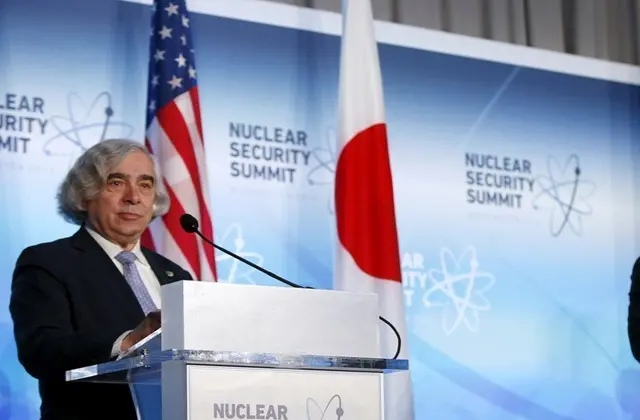The United States and Japan on Friday announced that they would work together to eliminate highly enriched uranium (HEU) from a Japanese research reactor to reduce the risk of theft and use by nuclear terrorists.
The two countries said in a joint statement at the 2016 Nuclear Security Summit in Washington, D.C., that all HEU fuel at the Kyoto University Critical Assembly will be transferred to the U.S., where it will be downblended to low enriched uranium (LEU).
The removal will take place after HEU fuel at KUCA is converted to LEU fuel. Unlike HEU, LEU cannot be used to produce a nuclear weapon, according to the statement.
The two countries also said that they have removed all HEU and separated plutonium fuel from the Japan Atomic Energy Agency's Fast Critical Assembly (FCA), which came online in 1967 for the purpose of studying the physics characteristics of fast reactor cores.
The United States will "downblend the HEU to low enriched uranium for use in civilian activities and convert the plutonium into a less sensitive form for final disposition," the statement said.
Currently, it is estimated that Japan has about 47 tonnes of separated plutonium and 1.2 tonnes of HEU for research reactors.
Chinese Foreign Ministry has urged Japan to take measures to respond to international concerns about Japan's excessive stockpile of nuclear materials. Enditem
 简体中文
简体中文



